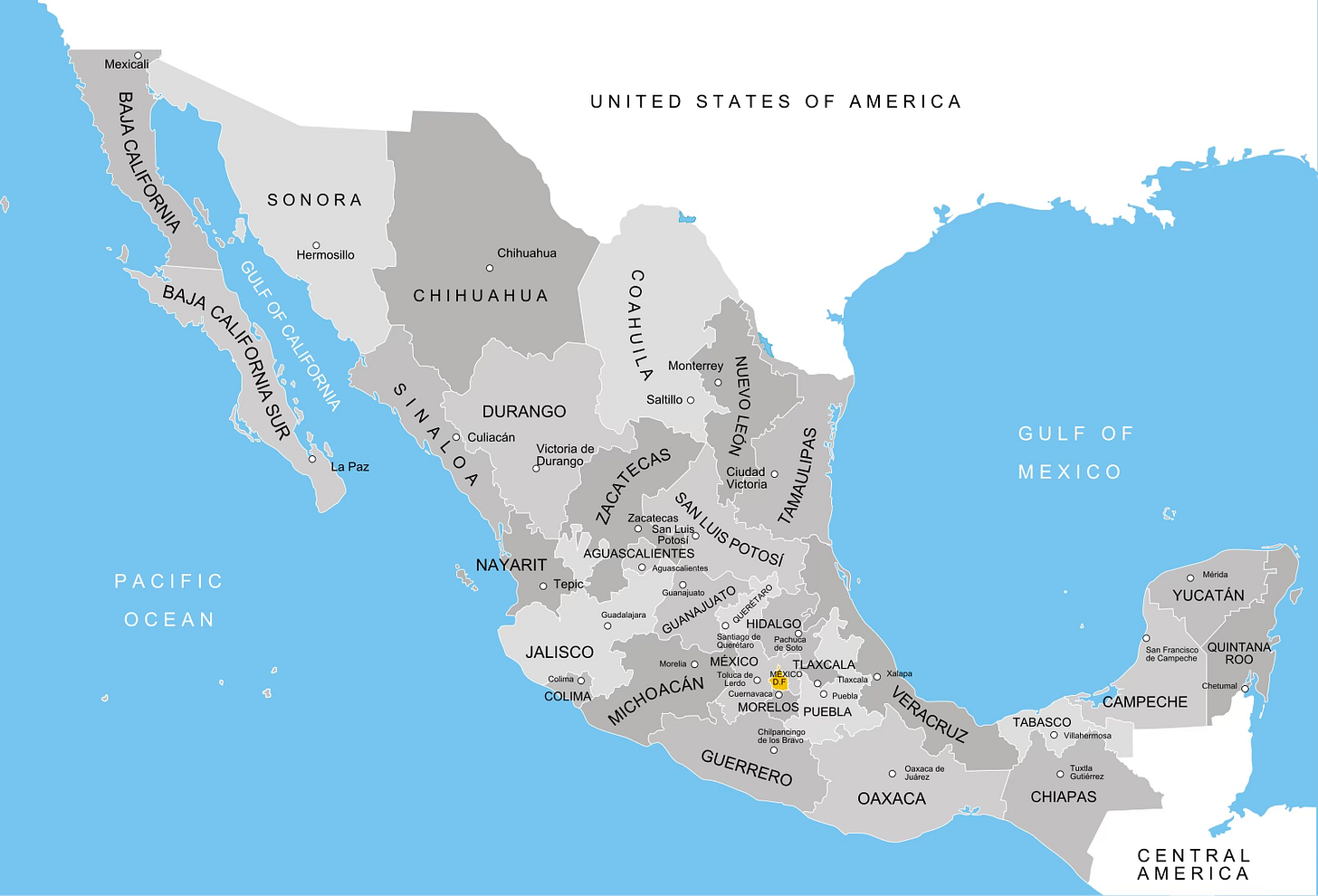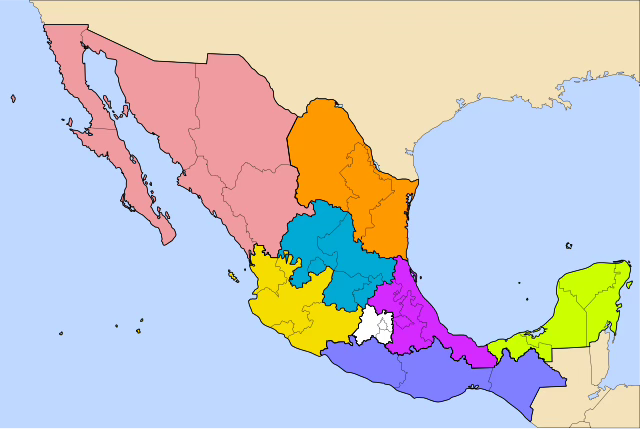How to Find a Place to Live in Mexico
You've decided to move. Now figure out where in Mexico you'd like to go.
If you’ve decided to move to Mexico you very likely have already picked the town, city, or region in which you’d like to live. You’ve been there, had a hot, fresh taco on a street corner or eaten at an elegant century-old restaurant, felt your face bathed by the sun, stood in the surf of the Pacific Ocean, been moved by the music wafting out onto the street from a café or cantina, or in some other way have been touched by Mexico sufficiently enough to be able to picture a far more permanent life in the country. The fact that the United States is rapidly collapsing probably doesn’t hurt either!
Here’s how to find the place you’ll want to move to.
How to Find a Place to Live in Mexico
The best way to find your new home in Mexico is to start by considering what is most important to you and then becoming more specific as you begin to dial in your preferences. Really this is no different from finding a home anywhere else in the world. This guide will help you decide how to find that place.
As we work our way through this list common issues to watch out for will be listed. Some will seem universal to anywhere you might want to live, while others will be more specifically tied to Mexico itself.
Note: Give Yourself Time To Make a Decision
A vacation is very likely not a long enough time for you to be able to make a completely informed decision about where you’d like to live in Mexico. Remember that a vacation for most people is a tiny, joy-filled bubble that lifts you up and out of the ordinaryness of everyday life. When you move somewhere, though, including a country as gorgeous as Mexico, most of your time is spent doing all the stuff that you avoid thinking about when you go on vacation. Being forced to confront the realities of a place outside of a vacation can make it seem much less attractive.
Ideally, you should spend between 4-to-8 continuous weeks in the place you’re thinking about moving to. If you’re planning to keep your job so that you can work digitally from Mexico, plan to spend most (if not all) of that time working. You may find the place you loved when you had lots of free time looks very different once you’re working your normal hours.
The States and Regions of Mexico

Mexico has 31 states and Mexico City, which functions similarly to Washington D.C. While Mexico is often portrayed as being one giant, singular mass without much cultural diversity, this is not at all the case. Just as the state of New Hampshire is substantially different from the state of Arizona, the different states of Mexico are as well. Each state is its own distinct, autonomous region with its own culture(s), Indigenous groups, laws, norms, geographies, climates, and foods.

Just as the U.S. can be broken informally into regions like the West, Southwest, Midwest, South, Mid-Atlantic, and Northeast, Mexico also can be informally broken down into regions. The number and name of those regions changes depending on who is describing them, but the above map is a fairly good representation of those geographical and cultural groupings.
Choose the Right Region
Mexico is very often portrayed as a homogenous country without much variation. People tend to think of either beaches and resorts or deserts and cartel killings. Mexico, though, is a huge and incredibly varied place. Different regions can have very different geography, weather, elevations, and climates. Do not assume that one part of Mexico is like another! Mexico is also not culturally homogenous. Norms and cultural expectations can change drastically depending on where you are, and the vibe can change not just from region to region, but from town to town.
Do not assume that one part of Mexico is like another!
When choosing which region you want to live in, treat this the same way you would if you were moving within the United States.
General considerations include:
What’s the climate like?
What is the altitude?
What is the time zone?
How strong is the economy in the region?
This will impact things like the condition of roads and highways, garbage disposal, wildfire response, and far more.
Is the region tourist-heavy?
Tourism brings in significant wealth, but also drastically impacts local culture.
Mexico-Specific Considerations Include:
Is there a rainy season and/or a dry season?
If yes, how extreme is each season and how long does it last for?
Are there problems with drought?
Water access is a pervasive issue across all parts of Mexico.
Is there cartel activity in the part of Mexico you are considering?
Some parts of Mexico have more problems with organized crime than others. There are also parts of Mexico that have cartel activity but also have cities or zones where you are unlikely to be directly impacted.
Is the region on the Pacific Coast or the Atlantic Coast?
Which coast and where along that coast will significantly increase your exposure to hurricanes or tropical storms.
Depending on the place and city, you may be subject to significantly more cartel-related crime and corruption.
Choose the Right Town or City
Once you’ve picked a region, you’ll need to pick a town or city. This is probably the most important decision you can make when you’re deciding where you want to live.
If you’re planning to move to Mexico you should do so with the intention of embracing Mexican culture and Mexican people. But just because you’re moving to Mexico doesn’t mean you’re obligated to completely surrender your preferences, desires, or old ways of life. Sociologists refer to this process as accommodation — the act of adapting to new circumstances while still holding onto the things that are important to you and your identity.
Treat the hunt for a new town or city like you’re making the same decision in your home country. What are you looking for in a place to live?
General Considerations:
Is there public transit?
If not, or if you are uncomfortable using what is there, will you need to buy a car?
Are there markets or supermarkets?
How far away is the nearest hospital?
Are there many restaurants?
Are they the type of restaurants you like? Smaller towns or villages may not have international restaurants.
What’s the population of the town?
The smaller the town, the more homogenous it likely will be.
How far away is the closest international airport?
Mexico-Specific Considerations Include:
Is drought a problem and will you lose access to municipal water? This is a major concern all across Mexico.
If yes, for how many months does the drought last?
Is the town or city a tourism hub?
If yes, your community, in some way, is likely impacted by cartel activity. This particularly applies to towns or cities in the north of Mexico, on the Gulf Coast and the Pacific coast, and is especially an issue in resort towns.
Is the town or city sufficiently diverse for you?
Is the town LGBT-friendly?
Are people who are non-Mexican welcome?
How is the local infrastructure?
Signs a town are wealthier include if paved roads are in good condition, if there are modern and functional street lights, and if the municipal building and/or town square are in good condition.
If you have children that are school aged, are there private schools and how are they?
Mexico has one of the worst public school systems in the world but private schools are plentiful and can be of very high quality. Research ahead of time what your education options are and how much schooling costs.
Special Considerations
Mexican culture is far more collectivist and community-oriented than is typically found within the United States, and it also can be very idiosyncratic. For example, in Oaxaca it is extremely common for communities to have mandatory unpaid community service called tequio. But cultural (and legal!) obligations can go far further than that.
In our specific Oaxacan town, San Agustín Etla, all men of a certain age are required by law to participate in over 2000 hours of unpaid community police service. Friends in San Andrés Huayapam, one of Oaxaca’s wealthier outlying towns, once told us that their town has a vehicle that drives around broadcasting when locals have committed various infractions, and that at least once this has inspired vigilante mob justice. These types of practices can be unpredictable and vary from town to town.
All of this is to say, Mexico is a wonderful, quirky, often surprising country and its communities reflect that. It is in your best interest to learn as much as you can about where you want to move before you begin making concrete plans and changes. Do know, though, that Mexico is safer, more caring, and far more interesting than most people give it credit for, and it can be a wonderful place to live for a very long time.




Very comprehensive list, Jacob!